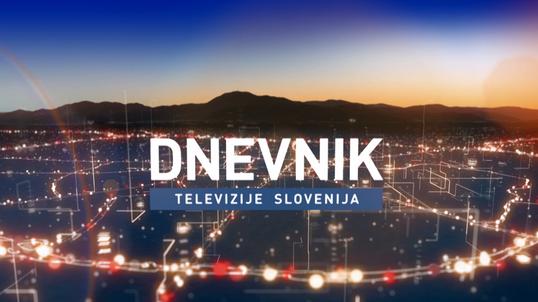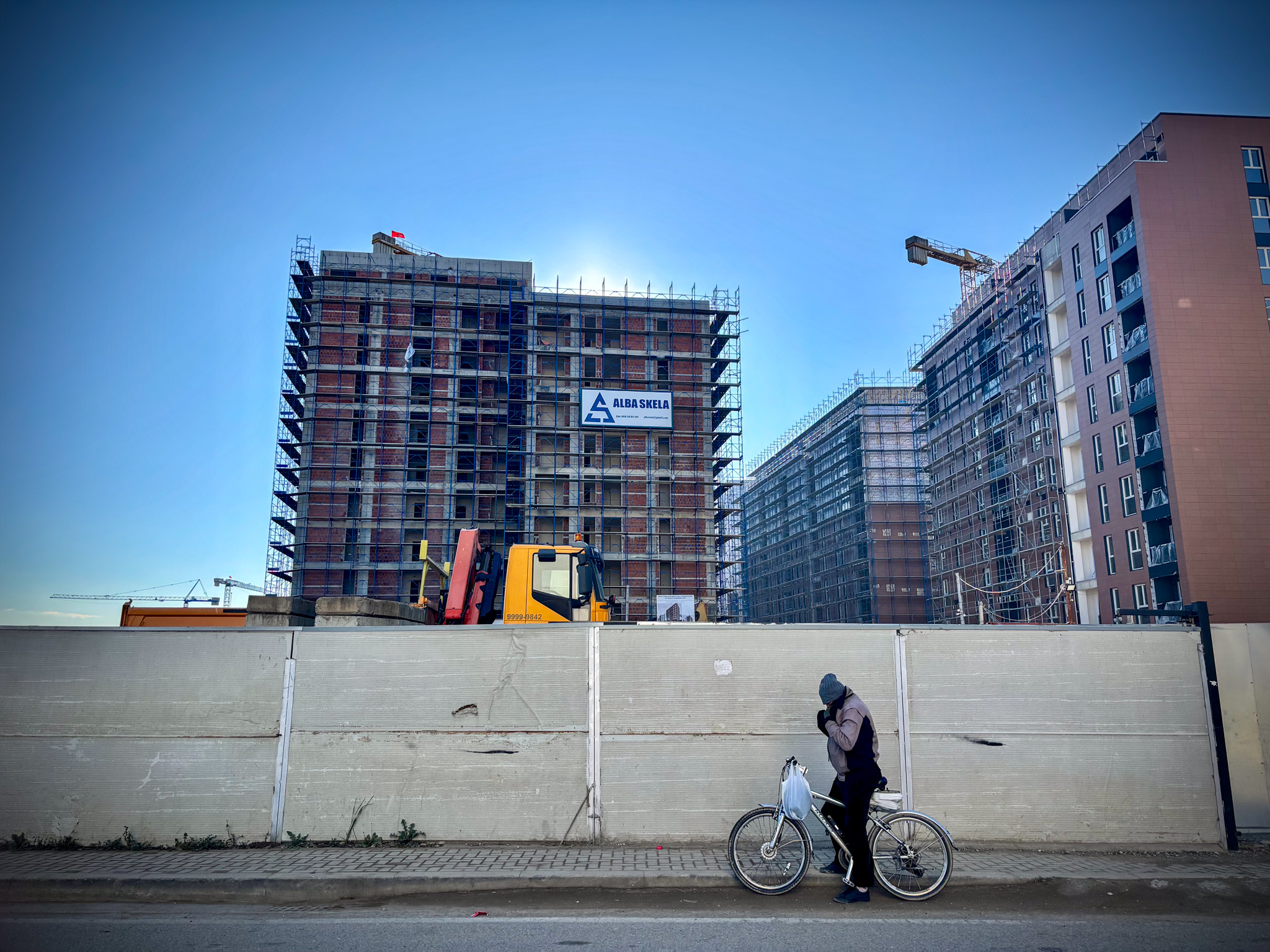Slovenia, the fight for RTV
The struggle for control of information in Slovenia is a constant in the permanent "civil war" between the country’s political forces. After long political clashes, the Board of Directors met for the first time last Monday

Slovenia-the-fight-for-RTV
News on RTV Slovenia
The agony is over for RTV Slovenia. The Constitutional Court has decided to remove the block on the articles of the law that allow for the appointment of the new leadership. Last Monday the new Board of directors met for the first time to dismiss Janez Janša’s loyalists, who had continued to rule the public service even after the fall of the centre-right government.
But let’s start from the beginning. The struggle for control of information in Slovenia is a constant in the permanent "civil war" between the country’s political forces. The centre-right has always attacked the public service and national newspapers, labelled as dens of "communists" and men linked to hidden powers close to the secret services of the previous regime. For this reason, it set up its own information system, including magazines and even televisions. In turn, these are often branded as instruments of sinister propaganda, to the point of evoking Goebbels, the Nazi propaganda wizard. Anyway, the last centre-right government, albeit taking some time, placed its men in the management structures of RTV Slovenia. No upheaval, it was said, but only an attempt to re-balance information that leaned blatantly to the left.
The takeover, more than the public system in general, mainly concerned the information segment of TV Slovenia, where new faces appeared on the screen, some coming directly from the outlets linked to Janša. Suddenly issues dear to the centre-right, such as the massacres perpetrated by the "popular power" in the immediate post-war period and more generally the misdeeds of the communist regime, found a relevance they had never had before. The clash between the management and a large portion of the television newsroom had started since the inauguration of the new directors. The journalists’ union, with a strike that has lasted for a year now, continued to denounce the subversion of all professional standards and unheard-of pressure on TV Slovenia journalists. Charges promptly rejected by RTV management.
The matter had also been on the electoral agenda. The centre-left coalition promised it would free public service from politics. Many expected that things would change abruptly, but the centre-right once again showed that it knows how to play its cards well, letting the government run idle for a year.
The first act was to file an amendment to the RTV law. The measure, which had no chance to pass, was intended only to delay the removal of the leadership. Thus, months passed before the centre-left could get its reform approved. The provision, born in the circles that had orchestrated the street protests at the time of the Janša government, effectively cancelled the power of parliament in RTV appointments, passing the ball to "civil society".
One way, they say from the centre-right, to give the centre-left control of the public service through friendly bodies and associations. Not giving up, the opposition immediately called a referendum. The consultation marked a landslide victory for the government, but the leaders of RTV, who turned to the Constitutional Court, blocked everything. The judges first ruled that they would look into the matter and then blocked that part of the law that allowed for new appointments.
Meanwhile, the stalemate only increased tensions within RTV and the information segment in particular. With the judges intent on discussing the matter, many now seemed to be on the verge of a nervous breakdown. In the end, it was clear that the Constitutional Court had gotten stuck and that there would not be the necessary majority to take a decision. At that point, with a legal ploy (and a simple majority) the High Court decided to remove the block.
In summary, the constitutionality of the law will be decided when there is a majority, perhaps in many years, but in the meantime the legislation can be applied. The centre-right immediately cried foul. The management of RTV announced an appeal to the European Court of Human Rights.
The controversy is destined to continue, infecting national political life, with after-effects also at the European level. Meanwhile the country continues to live in parallel realities, distinct worlds without the possibility of dialogue where everyone seems to cultivate their own truth.
In this, Slovenia is very similar to the United States where on one side there are the followers of former President Donald Trump and on the other the rest of the country. However, the war on RTV will not be without social consequences. Until a few years ago, watching the news was a ritual a large number of citizens took part in. Anyone who chose to look at the information provided by the public service at seven in the evening knew they could count on something credible and authoritative. Now, after years of coarse scuffles for the control of information, recovering prestige and ratings will not be a simple or quick operation.
| This publication was produced within the Media Freedom Rapid Response (MFRR), co-funded by the European Commission. The contents of this publication are the sole responsibility of Osservatorio Balcani Caucaso Transeuropa and its partners and can in no way be taken to reflect the views of the European Union. |
Slovenia, the fight for RTV
The struggle for control of information in Slovenia is a constant in the permanent "civil war" between the country’s political forces. After long political clashes, the Board of Directors met for the first time last Monday

Slovenia-the-fight-for-RTV
News on RTV Slovenia
The agony is over for RTV Slovenia. The Constitutional Court has decided to remove the block on the articles of the law that allow for the appointment of the new leadership. Last Monday the new Board of directors met for the first time to dismiss Janez Janša’s loyalists, who had continued to rule the public service even after the fall of the centre-right government.
But let’s start from the beginning. The struggle for control of information in Slovenia is a constant in the permanent "civil war" between the country’s political forces. The centre-right has always attacked the public service and national newspapers, labelled as dens of "communists" and men linked to hidden powers close to the secret services of the previous regime. For this reason, it set up its own information system, including magazines and even televisions. In turn, these are often branded as instruments of sinister propaganda, to the point of evoking Goebbels, the Nazi propaganda wizard. Anyway, the last centre-right government, albeit taking some time, placed its men in the management structures of RTV Slovenia. No upheaval, it was said, but only an attempt to re-balance information that leaned blatantly to the left.
The takeover, more than the public system in general, mainly concerned the information segment of TV Slovenia, where new faces appeared on the screen, some coming directly from the outlets linked to Janša. Suddenly issues dear to the centre-right, such as the massacres perpetrated by the "popular power" in the immediate post-war period and more generally the misdeeds of the communist regime, found a relevance they had never had before. The clash between the management and a large portion of the television newsroom had started since the inauguration of the new directors. The journalists’ union, with a strike that has lasted for a year now, continued to denounce the subversion of all professional standards and unheard-of pressure on TV Slovenia journalists. Charges promptly rejected by RTV management.
The matter had also been on the electoral agenda. The centre-left coalition promised it would free public service from politics. Many expected that things would change abruptly, but the centre-right once again showed that it knows how to play its cards well, letting the government run idle for a year.
The first act was to file an amendment to the RTV law. The measure, which had no chance to pass, was intended only to delay the removal of the leadership. Thus, months passed before the centre-left could get its reform approved. The provision, born in the circles that had orchestrated the street protests at the time of the Janša government, effectively cancelled the power of parliament in RTV appointments, passing the ball to "civil society".
One way, they say from the centre-right, to give the centre-left control of the public service through friendly bodies and associations. Not giving up, the opposition immediately called a referendum. The consultation marked a landslide victory for the government, but the leaders of RTV, who turned to the Constitutional Court, blocked everything. The judges first ruled that they would look into the matter and then blocked that part of the law that allowed for new appointments.
Meanwhile, the stalemate only increased tensions within RTV and the information segment in particular. With the judges intent on discussing the matter, many now seemed to be on the verge of a nervous breakdown. In the end, it was clear that the Constitutional Court had gotten stuck and that there would not be the necessary majority to take a decision. At that point, with a legal ploy (and a simple majority) the High Court decided to remove the block.
In summary, the constitutionality of the law will be decided when there is a majority, perhaps in many years, but in the meantime the legislation can be applied. The centre-right immediately cried foul. The management of RTV announced an appeal to the European Court of Human Rights.
The controversy is destined to continue, infecting national political life, with after-effects also at the European level. Meanwhile the country continues to live in parallel realities, distinct worlds without the possibility of dialogue where everyone seems to cultivate their own truth.
In this, Slovenia is very similar to the United States where on one side there are the followers of former President Donald Trump and on the other the rest of the country. However, the war on RTV will not be without social consequences. Until a few years ago, watching the news was a ritual a large number of citizens took part in. Anyone who chose to look at the information provided by the public service at seven in the evening knew they could count on something credible and authoritative. Now, after years of coarse scuffles for the control of information, recovering prestige and ratings will not be a simple or quick operation.
| This publication was produced within the Media Freedom Rapid Response (MFRR), co-funded by the European Commission. The contents of this publication are the sole responsibility of Osservatorio Balcani Caucaso Transeuropa and its partners and can in no way be taken to reflect the views of the European Union. |











